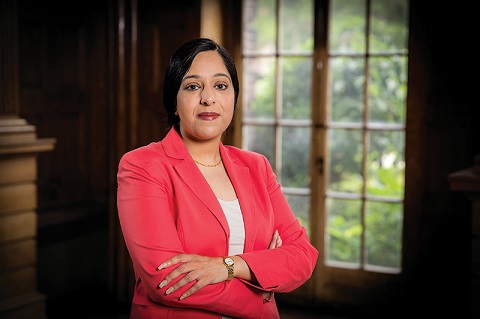Imagine a first-year law student waking from a recurring nightmare, heart racing, body drenched in sweat. What could be so terrifying? Being forced to marry against her wishes. Her control over her life stolen from her by her family and community. Her future decisions dependent on her husband’s and in-law’s permissions. Her studies and her dreams for a career interrupted, if not ended permanently.
This may seem difficult to believe, but forced marriage is a reality in Canada, even though many Canadians are unaware of it. As a lawyer practising family law in the Greater Toronto Area and working with many diverse communities, I see the resulting impact on those affected. Yet, I am hopeful that Canada’s new legislation against this type of abuse – passed in June – will be a powerful force for change.
A forced marriage occurs when one or both parties do not give full and free consent to be married to each other at that time. The compulsion may come from immediate or extended families and ethnic or religious communities, both here in Canada and internationally. Some women are taken abroad to visit family and forced into marriage there; some are coerced here at home. It happens to men too. Those forced may be Canadian-born or more recent arrivals.
Forced marriage is sometimes confused with arranged marriage, even by those who have been forced. The key distinction is that in an arranged marriage, while there may be the same involvement of family and community, both individuals are fully agreeing with all that is taking place and are looking forward to their lives together. The exact opposite is true for at least one party in a forced marriage whose consent may be assumed, given by others or coerced through extreme emotional pressure, threats and even physical violence.
Patriarchal cultural traditions and communal definitions of honour and shame complicate and hide the very real human rights violations inherent in a forced marriage. The individual loses agency over their life and is at greater risk of sexual assault and other forms of physical violence, of emotional abuse and financial control.
These dangers are compounded because forced marriages are very hard to leave. Separation and divorce are still considered unacceptable in many communities and can lead to ostracism. I always find it difficult to help a woman who is experiencing family violence to understand that she can separate and leave the marriage to protect herself and her children from further abuse. She may have lacked choice then, but she can say no now.
These human rights violations need to be prevented, and this is where Canada’s new legislation will be most helpful. Social service agencies have not been effective in working with the ethnic communities they are meant to serve because they lack the deep connections and understanding required for meaningful action. They are mistrusted and believed to have their own vested interests, such as securing funding or furthering a political ideology. They too often align with the very powerful and vocal within communities and end up functioning as cultural apologists.
Legislation helps to effect change in two key ways. It provides options for potential victims, such as peace bonds to place restrictions on potential abusers, and gives the police the power to intervene when approached for assistance.
And clear laws with easily understood consequences will effect change through word-of-mouth. Criminal law serves an educational function; it delineates acceptable behaviour within society, especially when there are misperceptions regarding legality. This is why many countries, including the United Kingdom and Australia, have already enacted similar laws.
I am hopeful that this legislation and resulting awareness will empower the vulnerable and aid those who seek to assist them. Protecting the silent and powerless is fundamental to the very concept of the universality of human rights. For the powerless and the resilient, they too have dreams.
Nav K. Singh (JD 2000) is a lawyer building bridges between diverse and mainstream Canadian cultures to prevent family violence through community engagement, policy work and her professional practice.
Video: Canadian Cultural Mosaic Foundation
Recent Posts
A Sentinel for Global Health
AI is promising a better – and faster – way to monitor the world for emerging medical threats
The Age of Deception
AI is generating a disinformation arms race. The window to stop it may be closing
Safety First
AI has developed faster than anyone thought. Will it serve humanity’s best interests?



